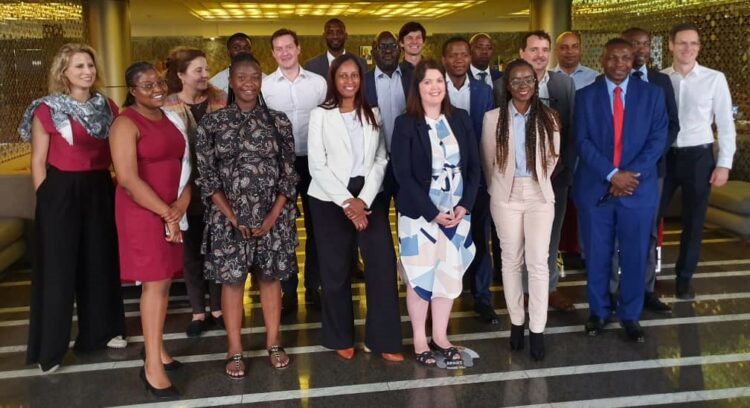The workshop provided a safe forum (under the Chatham House Rule) in which the participants could comment honestly on the strengths and drawbacks of the financial instruments that are available to support or are now implemented for renewable energy projects.
“We wanted to talk to practitioners and ask, ‘Are these things working?’” said Duma. “‘Can they be more effective? What should be improved?’”
These conversations will contribute to the knowledge base on this topic and inform what recommendations the researchers can make to multilateral development banks in an effort to expand renewable energy and help countries meet their climate goals.
The discussion gave not only an overview of the risk mitigation instruments, but provided insight on how national economies also affect renewable energy growth.
Certainly, the renewable energy projects underway would not have gotten started without these instruments, Duma said, but other forces impose limits on future growth, particularly devaluation of currencies (making payments linked to hard currency more expensive) and the wider challenges faced by the Zambian economy, post-Covid.
“It looks like no risk mitigation instrument can overcome that,” said Duma. “In their current form, you can only go so far – some of the risks and economic challenges now are too big for these instruments to handle. If they’re going to play a bigger role, other structural reforms need to happen.”
But among the most striking aspects of the workshop, the researchers said, was how forthcoming the participants were, willing to speak freely and constructively. They exchanged information informally over meals and shared honest opinions in guided discussions.
“It was inspiring to see the different ministries talk to each other,” Muñoz Cabré said of the government representatives’ participation. Those interactions may not have happened but for the closed-door environment the workshop provided.
The researchers will use the information gathered to develop reports and policy recommendations, and they plan to visit other regions of Africa to further their work on this topic.
The Swedish Ministry for Foreign Affairs provided the funding for this initiative through its support for the Stockholm Sustainable Finance Centre, a collaboration between SEI and the Stockholm School of Economics.
Source link : https://www.sei.org/featured/risk-mitigation-renewable-energy-zambia/
Author :
Publish date : 2022-12-19 08:00:00
Copyright for syndicated content belongs to the linked Source.
